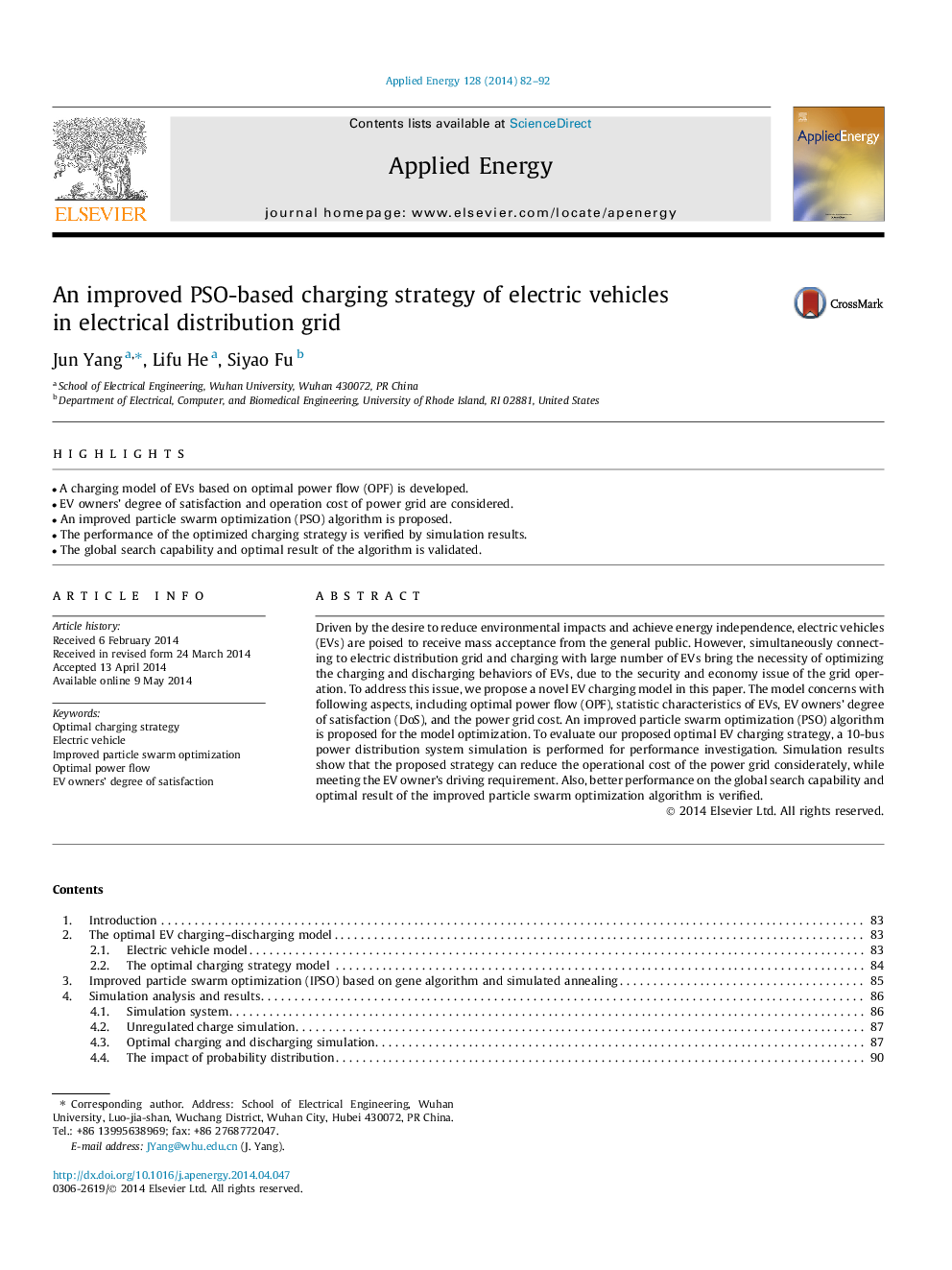| Article ID | Journal | Published Year | Pages | File Type |
|---|---|---|---|---|
| 242666 | Applied Energy | 2014 | 11 Pages |
•A charging model of EVs based on optimal power flow (OPF) is developed.•EV owners’ degree of satisfaction and operation cost of power grid are considered.•An improved particle swarm optimization (PSO) algorithm is proposed.•The performance of the optimized charging strategy is verified by simulation results.•The global search capability and optimal result of the algorithm is validated.
Driven by the desire to reduce environmental impacts and achieve energy independence, electric vehicles (EVs) are poised to receive mass acceptance from the general public. However, simultaneously connecting to electric distribution grid and charging with large number of EVs bring the necessity of optimizing the charging and discharging behaviors of EVs, due to the security and economy issue of the grid operation. To address this issue, we propose a novel EV charging model in this paper. The model concerns with following aspects, including optimal power flow (OPF), statistic characteristics of EVs, EV owners’ degree of satisfaction (DoS), and the power grid cost. An improved particle swarm optimization (PSO) algorithm is proposed for the model optimization. To evaluate our proposed optimal EV charging strategy, a 10-bus power distribution system simulation is performed for performance investigation. Simulation results show that the proposed strategy can reduce the operational cost of the power grid considerately, while meeting the EV owner’s driving requirement. Also, better performance on the global search capability and optimal result of the improved particle swarm optimization algorithm is verified.
